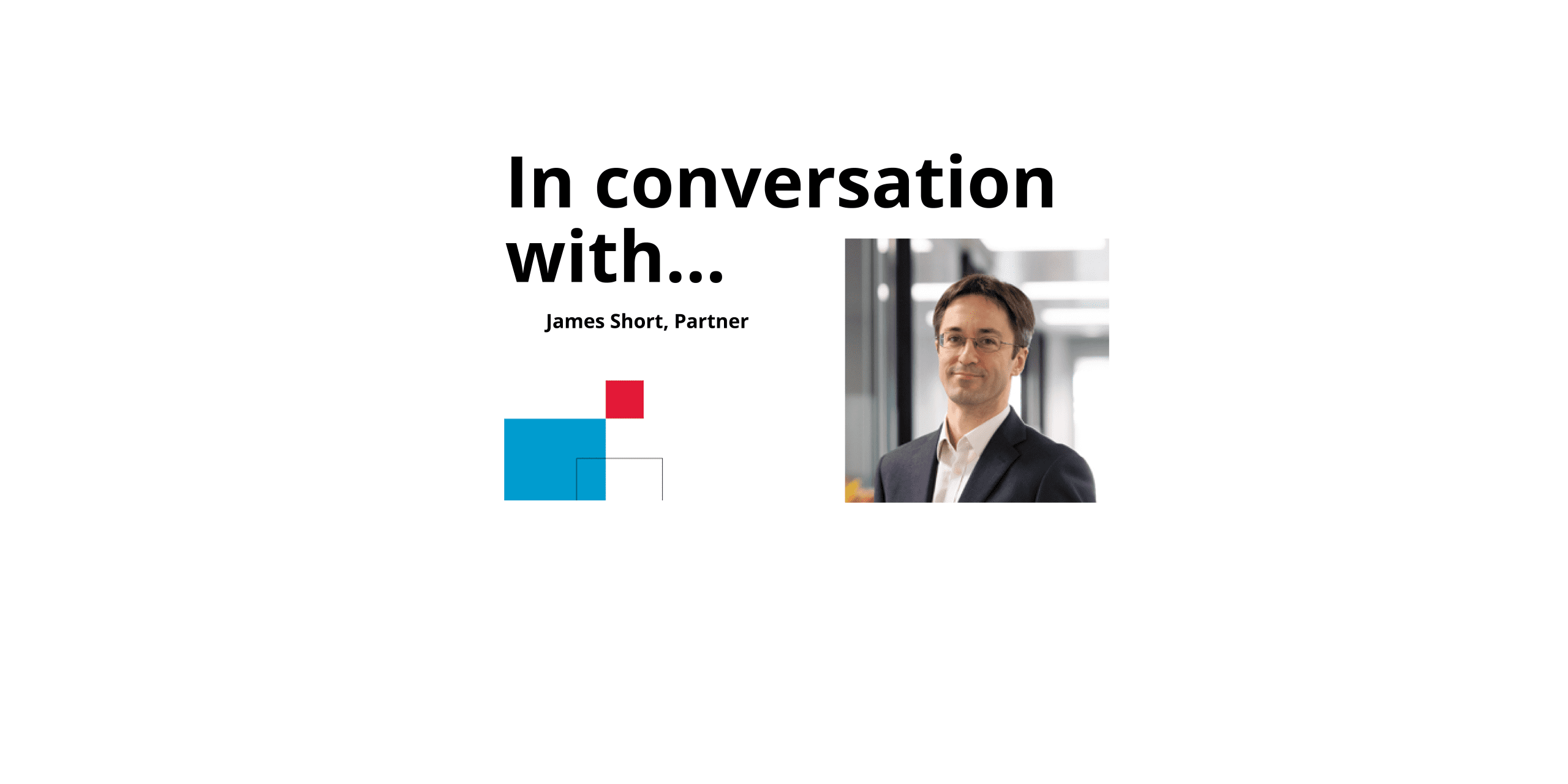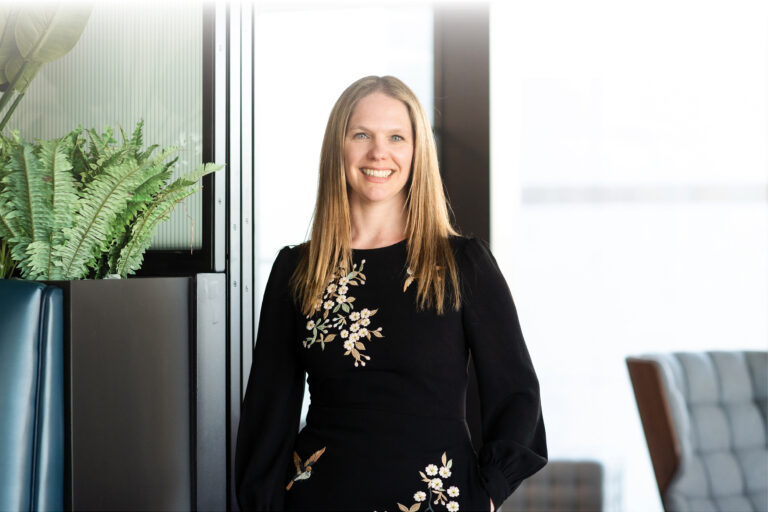I’m delighted to be joined by Dr James Short for my next “in conversation with” piece. James is a key member of our engineering team and today we will be exploring his expertise in oppositions and appeals before the EPO.
MP: James, thank you for joining me today. To get us started: when can an opposition be filed against a European patent?
JS: I didn’t realise there was going to be a test! An Opposition must be filed within a non-extendable period of nine months from the date that the European Patent Bulletin mentions that the patent has been granted.
MP: And why do people file oppositions and appeals before the EPO?
JS: One of the big benefits of pursuing an opposition is that you can “knock out” a patent centrally at the EPO rather than having to seek revocation of the patent in the national courts in multiple territories. And Opposition/Appeal proceedings before the EPO are a lot less expensive than bringing proceedings before a court. The official fee for filing an Opposition at the EPO is only 880 Euros. There are professional costs of course, but it’s still very cost effective.
You can also go down the UPC route, which is also a centralised procedure, but it’s more expensive than filing an Opposition at the EPO.
MP: If you want to read more about UPC strategy, please see my in conversation with piece with Daryl Penny.
JS: Filing individually before different courts becomes expensive very quickly. Typically, you would file in a limited number of countries – say, in the UK, Germany, the Netherlands, but not across the whole of Europe. In practice, you wouldn’t start revocation proceedings in all 39 countries!
MP: Talk us through the EPO opposition and appeal process. Do the hearings last just one day?
JS: The EPO opposition and appeal process is largely paper based, concluding in a hearing that usually concentrates on a few decisive points.
It is very important that your case is presented fully in writing so that the Opposition Division or Appeal Board can have a good understanding of all of the issues ahead of the hearing.
Before the hearing, a preliminary opinion is issued indicating the view of the Opposition Division or Appeal Board on the objections raised. This opinion is not binding and so the purpose of the hearing is usually to challenge or support the reasoning given for this opinion.
The hearings themselves typically last one day. Although I have had two-day hearings scheduled in the past.
Back when oral proceedings were held in-person, it was usual to try and get a hearing done in one day – even if that meant finishing really late. So, you might be starting at 9am, but still be going in the evening. Personally, my longest ever hearing finished at 9pm, but I know of colleagues who have continued even later than this.
At that time, because parties travelled from different countries to be there, there was a wish to get the hearing finished and reach a decision on the case to avoid the need for further travel.
These days, with video conferencing being the norm, it is much more straightforward to arrange hearings and they are not as disruptive and so adjournments – which previously were quite rare – are now being used more readily.
MP: I haven’t experienced too many rescheduling’s myself.
JS: It’s ultimately at the discretion of the Opposition Division. If they don’t feel they’ll get a decision in the time available, they are more likely to adjourn at a reasonable time.
Fortunately, every hearing that I have had that was scheduled for two days has finished in the first day. In fact, the first two-day hearing I had started at 9:00am and was finished by 10:30am on the same day.
MP: In your favour?
JS: Fortunately, yes!
MP: As you mentioned, the EPO Opposition/Appeal procedure is quite focused on the written procedure – you need to get all your arguments on paper in advance of the hearing.
JS: That’s true. At the oral hearings, you’re meant to be presenting arguments within the scope of your written arguments. So, it’s certainly a benefit to have clearly set out all the relevant technical facts before the hearing date.
That said, you can still raise new arguments during an opposition as the hearing progresses. In appeal proceedings, that freedom is much more restricted and it’s expected that there are no surprises in the hearing. If you try to introduce new facts or arguments during an appeal hearing, you are likely to get shut down pretty quickly.
In my experience, there can be big swings between hearings at first instance and those on appeal, particularly where people aren’t really ready for the procedural restrictions of appeal proceedings. It’s not uncommon for patentees to get caught out by the first instance case going almost too well. A positive preliminary opinion can lull some patentees into a false sense of security. If you get an initially positive preliminary opinion but you’ve not considered all of the potential arguments raised by the opponent, you might not have the fallbacks in place if those objections are carried over in appeal. At that stage, it can be too late to file new requests.
So, even if everything is going well, it is worth getting your auxiliary requests in place for the worst-case scenario, just in case.
MP: There is certainly a need to cover all your bases and to make sure that all potential angles of attack have been addressed.
JS: That is very true, though quite often it does mean you can end up having to make a selection from a potentially very large number of auxiliary request options. If you file too many requests, they might not all be admitted. So, while covering your bases is important, trying to keep all of your options open is not always realistic and so you do need to make a judgement call and sometimes that is a bit more art than science.
Although it can be helpful on occasion, there is rarely benefit to be had in “keeping your powder dry” for the oral proceedings. This can be counter-productive for complex arguments, because you will surprise the Opposition Division as much as the other side, with the risk that they will not be able to follow the argument. Moreover, this can lead to important issues being lost in the gap between opposition and appeal proceedings. If an argument is only raised in the hearing before the Opposition Division, it might not be clearly captured by the Minutes and so it may be difficult to rely on during any appeal.
MP: How did you develop your skills in oppositions and appeals?
JS: I was lucky! In my first year at Boult, I was able to watch Tony Pluckrose in a hearing in Munich for an important client. Despite having read all of the documents, it was a real struggle to keep up with the arguments. Tony won and made it look easy. I went to a hearing with Tony pretty much every year from then onwards, as that particular client was opposed frequently at that time. At each hearing, I understood more and more and gradually tuned in to the proceedings, noting the way different attorneys presented their cases differently, what worked for them and what mistakes they made.
Eventually, I finally made a useful contribution of my own, which ultimately became a turning point in that case. We had taken the case over from another firm, who had told our mutual client not to attend since the preliminary opinion had indicated that all of the requests lacked an inventive step. However, I spotted something in the prior art that had not been discussed, which gave us an argument that nobody had considered before. Ultimately, the patent was maintained as granted and the client was thrilled.
After that case, I was addicted to opposition work!
MP: Hearings are incredibly hard work, but they are such a rewarding part of our job. There’s a great satisfaction to be found in them, especially when you win.
JS: Exactly right. It’s challenging but particularly enjoyable for those of us who are naturally competitive.
It is important to be quite self-analytical, in order to learn and improve your approach. You can learn something from every hearing by trying to figure out why some decisions went your way and others did not.
It is fascinating to compare the different representatives you come up against. There are some excellent patent attorneys that I am up against regularly and they each have different styles.
MP: We’re lucky to have a wealth of experts in EPO oppositions and appeal here at Boult, to name but a few: Dr Rohan Setna, Daniel Weston, Adrian Hayes and myself in the Chemicals/Materials area; Dr Nina White, Matthew Spencer and Dr James Legg in the Biotechnology field; Neil Thomson and you in the Engineering space and Daryl Penny and Jo Pelly in the medical device space.
JS: Absolutely. Rohan [Setna] in particular helped me a lot when I was starting out. These days, I do a lot of oppositions for one of our mutual clients. I’ve learned a lot from him.
And I have recently enjoyed arguing alongside Daryl [Penny], who is one of the most natural presenters I have seen at a hearing.
MP: What else do you enjoy about oppositions and appeals?
JS: In addition to the enjoyment of getting my client a good result at the actual hearing, the preparation itself can be very rewarding.
Some of the most satisfying cases have been those with a greater technical content. In those cases, having access to technical experts can make a really big difference to the outcome of a hearing. Similarly, it is good fun when the client is enthusiastic about the arguments – especially when they disagree with you! It is great to discuss the case from different perspectives. It might feel like you’re going in circles but then someone says something that makes you go – there you are, that’s the inventive step; the classic lightbulb moment when all the pieces of the jigsaw fall into place.
MP: For the Board of Appeal, I also find you have to be ready for anything! First instance hearings at typically quite formulaic. Typically, you consider admissibility, added matter, clarity, sufficiency, novel and inventive step in that order, but in appeals you can start anywhere. You might go into an appeal hearing and the chair says, I want you to start from D5 and argue why the patent involves an inventive step.
JS: Yes, you’re right. The Board can order the issues in a hearing to get to a conclusion in an expedient way. I try to be ready to discuss any of the issues immediately. That fluency can give the Board or Opposition Division confidence that you know what you are talking about and are worth listening to.
MP: Is there a degree of a poker face needed?
JS: Indeed.
MP: During a hearing, I always try to show as little emotion as possible when the chair is announcing a decision. During the hearing, if for example the Division/Board is deciding on whether a Request is novel, you will need to be prepared for both outcomes. If they announce the claim is novel, then you will immediately need to address the next issue, typically inventive step. If they announce the claim Request is not novel, the Patentee’s representative will need to decide with Request to consider next. You have to think on your feet, reacting quickly when things do or don’t go on your way and try not to show too much of a reaction.
JS: Reacting calmly to decisions and unexpected situations is really important. During preparation for the hearing, Nick McLeish, now retired, would often write out a whole decision tree showing how the hearing might go: showing if this happens, then I should do this; if they decide this, then I’ll move on to this. I don’t personally go into that much detail, but I do take the time to think about the different routes a hearing could take. If you get asked “OK Mr Short, what’s your objection?” You don’t want to be sitting there stumped or asking for ten minutes to collect your thoughts. You just have to be able to respond.
Getting that right is all down to the prep before the hearing and running through likely scenarios in the recess.
MP: Hearings can be very tiring because you’re continuously thinking two steps ahead! You always have to be prepared for any outcome. As a firm, we are privileged to have such a lot of expertise in EPO Oppositions and Appeal and we get a lot of referrals from clients whose patents have been oppose and they ask us to defend them. Last year as a firm we attended over 65 EPO Oppositions and Appeal hearings and to date this year we’ve already had over 40. One advantage of doing so many hearings is that you get to know/recognise Members of the Opposition Division/Boards of Appeal. Do you get recognised by Members of the Opposition Division/Boards of Appeal?
JS: Absolutely! It’s very important to keep track of who’s who, especially in narrower technical fields. For example, it’s useful to know which Opposition Division’s need more technical background information in writing and which are likely to be more flexible with hearing arguments on the day.
For Boards of Appeal, it’s important to keep up with the decisions of the specific Boards you deal with regularly, since their interpretation of the law – in particular, the procedural rules – can be different from others’.
MP: In your experience, are EPO oppositions and appeals common across all technical fields?
JS: Hearings are more frequent in some areas than others. Often, if there are a few larger entities in a space, such as in aviation, you’re more likely to see higher rates of opposition proceedings. Similarly, in more technically-niche fields where there’s only a few larger players who are more likely to butt heads, you might see more oppositions activity.
As another example, our Biotech team is always busy, because there are a lot of extremely valuable patents in the biotech/pharma field.
MP: James – to bring our discussion to a close, do you have any advice for your former self with respect to EPO Oppositions and Appeals?
JS: If I were to give myself advice when I was first starting opposition work, I would say that you have to understand the documentation inside and out. The most important part of opposition work is to know that lever arch file of documents better than anyone else.
MP: Get out those highlighters! James – thank you for sharing your thoughts with us.
JS: Thank you, Michelle.
If you would like to read more about James and his practice, his profile can be found here and you can contact James at jshort@boult.com. Until next time, thanks for reading this examination of oppositions and appeals at Boult. We’ll return soon with another entry in our “Conversation with…” series.



